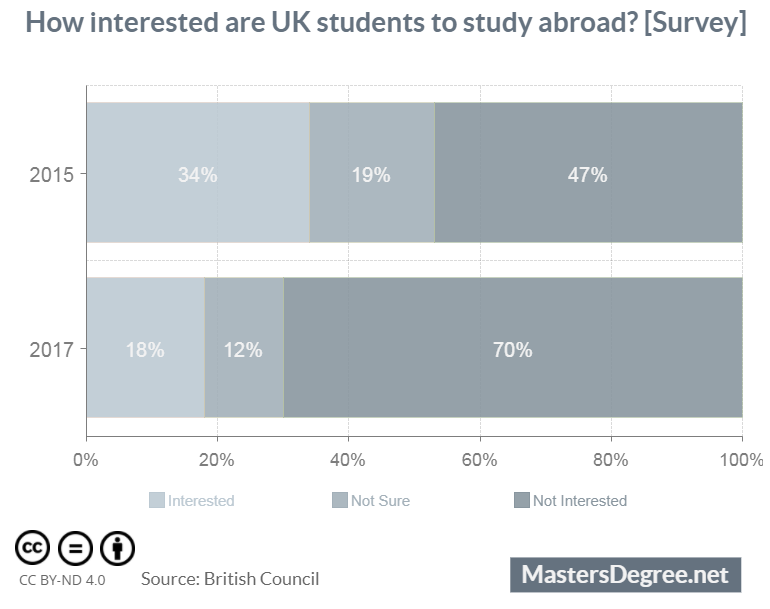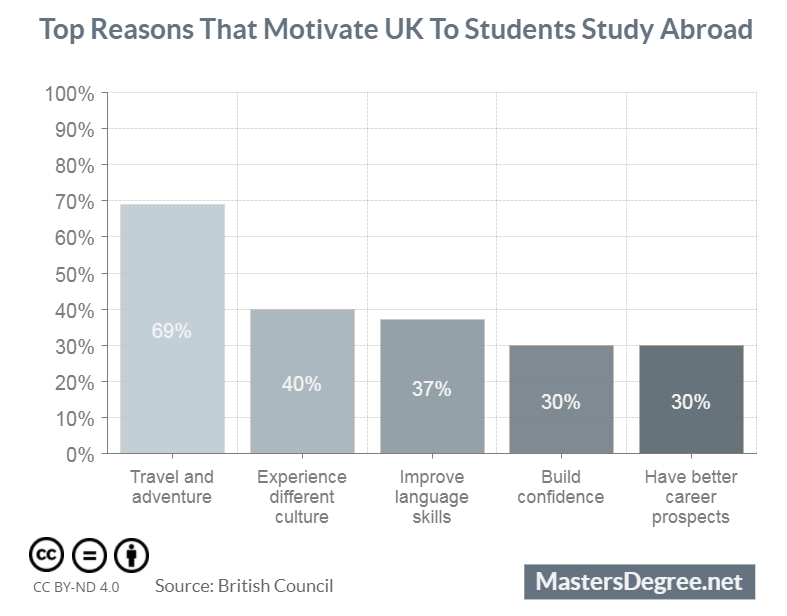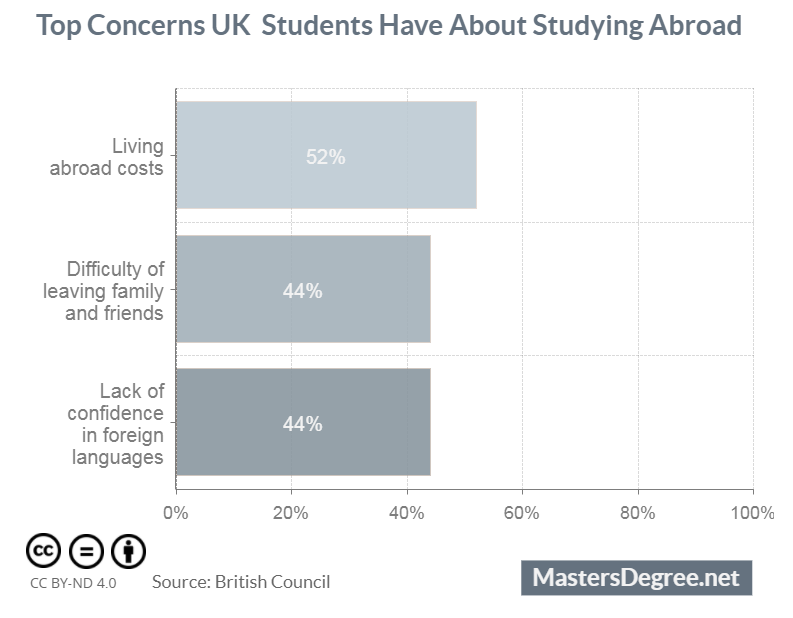Out of 1,033 surveyed UK resident students, 70% of them showed no interested in studying outside the UK. Only 18% of the students said they were interested in studying abroad.

Compared to the same survey conducted last year, where 34% of the students said they were interested in studying abroad, it means UK’s Strategy Outward Student Mobility makes a step back in their objective to double the percentage of first degree overseas students from 6.6 to 13.2 by 2020.
In 2012, UK submitted some recommendations to prioritize and support its students outward mobility policies. Since then institutions have initiated lots of projects and one of them is Broadening Horizons series of surveys. Their purpose is to take current evidence on the challenges these students face.
In May 2017 exactly 1,033 UK students took part in a Broadening Horizons survey to express their views on studying abroad. Just 18% of them said they are interested in it, the lowest percentage since 2013 when only 20% of respondents answered positively. 727 or 70% of students said they were not considering a possibility to study abroad, while 119 (12%) were declared unsure. 98% of participators were undergraduate students.
Most of these students were interested in studying Languages (19%), followed by Creative arts and design (12%) and Humanities (11%).
US actual political climate seems to have affected UK students causing their interest in the United States to drop. However, US is still their top favorite destination with 22%, followed by Canada (10%), Germany (9%), France (7%), and Australia (6%).
A huge proportion of surveyed students were enrolled at the undergraduate level (56%), 27% postgraduate level, 6% at Summer School and Other, 3% vocational studies and 2% at the Ph.D. academic level.
Some of the main reasons that lead UK students to take studying abroad into consideration are: Travel and adventure, Experience and different culture, Improve language skills, Benefit from a university partnership, Build confidence and career prospects.

The first choice, “Travel and adventure”, was picked by 69% of this survey respondents, leaving behind “Experience different culture” (40%), “Improve language skills” (37%), “Build confidence” (30%), and “Have better career prospects” (30%).
On the other hand, a bit more than half of them (52%) mentioned living abroad costs as their top concern about studying abroad, followed by the difficulty of leaving family and friends (44%) and lack of confidence in foreign languages (44%).

Furthermore, the survey found that another huge portion of students who claimed to have no intention to study abroad may change their opinion over their decision in the near future. From 82% of students who said they don’t want to study abroad, 88% of them said they would consider this opportunity.
When asked about their information sources about studying abroad, 72% of the students said they usually get it on the Internet, which may have led many of these students to a lot of misconceptions and mistaken information.
In 2013 and 2014, 76 percent and 79 percent of uninterested students said they didn’t have enough information about studying abroad.
Studying overseas at undergraduate level was a subject of an intense marketing campaign in recent years, resulting in a substantial increase of students pursuing a degree outside the country in 2015. At that time, just 58 percent of uninterested students claimed to not having the necessary information.
The good news for the UK is that most students who want to study abroad have no intentions to remain abroad after getting their degree. Over half of them (52%) said they would like to turn back to the UK and find a good job in their field of study, compared to just 5 percent who said they would like to study and work outside of their homeland.

